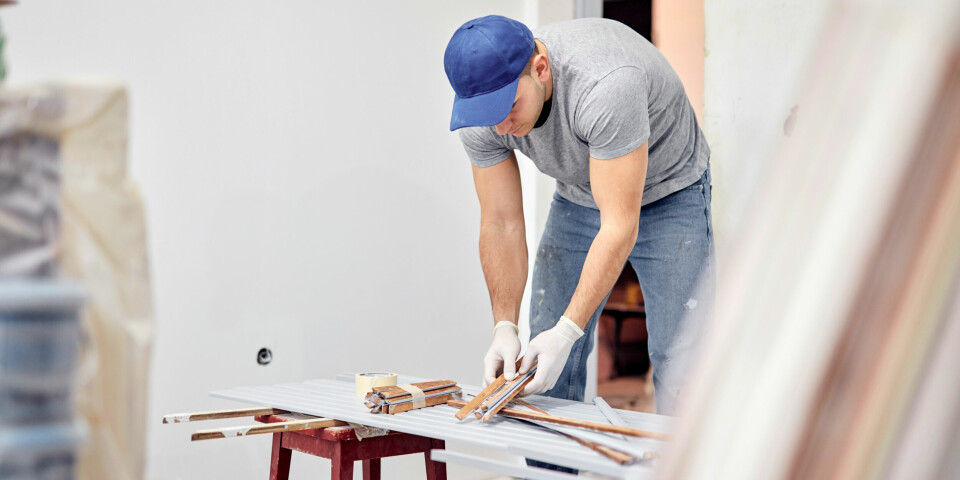-
French farmer protests: where roadblocks and disruption are restarting
A major demonstration is planned for Paris as well as a ‘siege’ of Toulouse
-
Snow causes transport havoc across France - more expected tonight
More than 1,000 kilometres of traffic jams were recorded in the Paris area. Some roads are closed and flights, buses and trains impacted, with six deaths recorded
-
French court hands out prison sentences and damages in Brigitte Macron cyberbullying cases
Ten people were found guilty over online comments claiming the president wife is a transexual woman and paedophile
People need to feel tax justice
It did not go unnoticed by protesters that on the same day President Macron spoke to the nation with concessions, the Senate voted through changes to the Exit Tax. Currently, rich business people who leave France must pay a tax on the ‘latent capital gains’ of their business shares of 30% if they sell them within 15 years – this was reduced to two to five years. We spoke to two tax experts about tax justice.

Tax justice and tax equality are vital to France, says Robert Matthieu, former tax inspector and author of Payer Moins d’Impôts pour les Nuls (Paying Less Tax for Dummies) – but achieving them is not easy.
The ISF (Impôt de solidarité sur la fortune) was designed to reallocate wealth from the richest to the poorest and close the gap between the two.
President Macron, as promised in his manifesto, relaunched the tax as the Impôt sur la fortune immobilière, limiting it to property. Shares and trust funds are now exempt.
The effect has been less tax in percentage terms for the richest 1% while the burden on the least prosperous 10-15% has grown.
Lucas Chancel, co-director of the World Inequality Lab at the Paris School of Economics, says tax injustice grates on most people, with 75% in favour of re-establishing ISF.
He said: “There is always talk that the rich will leave the country if they are taxed too much but studies show that this is not the case. Figures also show that taxing them less does not have a trickle-down effect. It does not kick-start the economy.”
He said the most unpopular taxes on fossil fuels are needed.
“Taxing fossil fuels drives people to change their heating methods, and their transport to cleaner, less polluting methods. We have to reduce consumption in order to reduce pollution but changing consuming means spending money, to change cars, to change heating boilers etc.
“So I think we should re-establish the ISF, which would generate around €5billion a year, and spend that on helping people change.”
ISF, he said, was always about tax justice and establishing equality. “It’s true that 58% of the population don’t pay income tax but that’s a tiny part of taxes levied. There are social security contributions, VAT and taxes on so many other things. The working poor pay around 48% in indirect taxes, which is approximately the same as the rich. That’s the injustice.”
He said the tax system is so complex that nobody really understands it and only the rich can work it to their advantage.
To give it more sense, people should pay less indirect tax and more income tax. “They need to feel they’re directly contributing to the project in France, that they are stakeholders. Paying income tax would help.”
Mr Matthieu agrees. He said: “Getting tax rebates or credits makes people feel like they are getting a favour from the state.
“It’s complicated because no government wants to announce a tax for everyone. We need a completely overhauled, simplified system but governments just tweak. For example, the new prélèvement à la source [pay as you earn] is not a new tax, just a new way of collecting it.”
He said French people have been allergic to paying tax since the Revolution. “But everyone should pay at least €20 because that makes them equal citizens, and they would appreciate more what their taxes provide, in terms of public infrastructure.
“It might also be good to have different bands of TVA so people pay less for necessities, more for luxuries.”
Mr Matthieu believes the main problem is that society is undergoing a profound transformation. “Now people want instant access to everything, they want three televisions, three cars, phones, a cruise for the whole family. The rich have these things, so why shouldn’t they?
“In this new society everyone has everything, but it’s hard to manage that. And meanwhile the real poor can’t buy food.
“We have to distinguish the real poor from the aspirational want-mores. We can’t satisfy them, but we can help those at the absolute bottom end.”
The tax system, and the philosophy of paying tax, should be explained in schools, he added.
“We also need to achieve tax justice so tax is to pay for communal things like roads and to redistribute wealth.”
It is a matter of national unity, he said. People must feel they are paying to finance a common project, a common view of the country, of what they want France to become in the future.
“That’s the bottom line. We need a clearly defined national project that everyone agrees on. National unity is important.”
























